Doug's favorite bulbs
Planting bulbs does not give the gardener instant gratification, that comes in the spring. There's nothing more exciting that seeing those flowers poke up through the cold earth.
Snowdrops
These small, pretty white flowers have bloomed as early as Jan. 15 in my garden. You never know when they will flower; it just depends on the winter. I like to plant them close to the house, as they will sprout a little earlier. I’m head over heels in love with the double flowering ‘Flore Pleno.’ Snowdrops will make a nice colony after a few years and are one of the few bulbs that like being divided right after blooming. They are also deer resistant and have never been molested in my garden.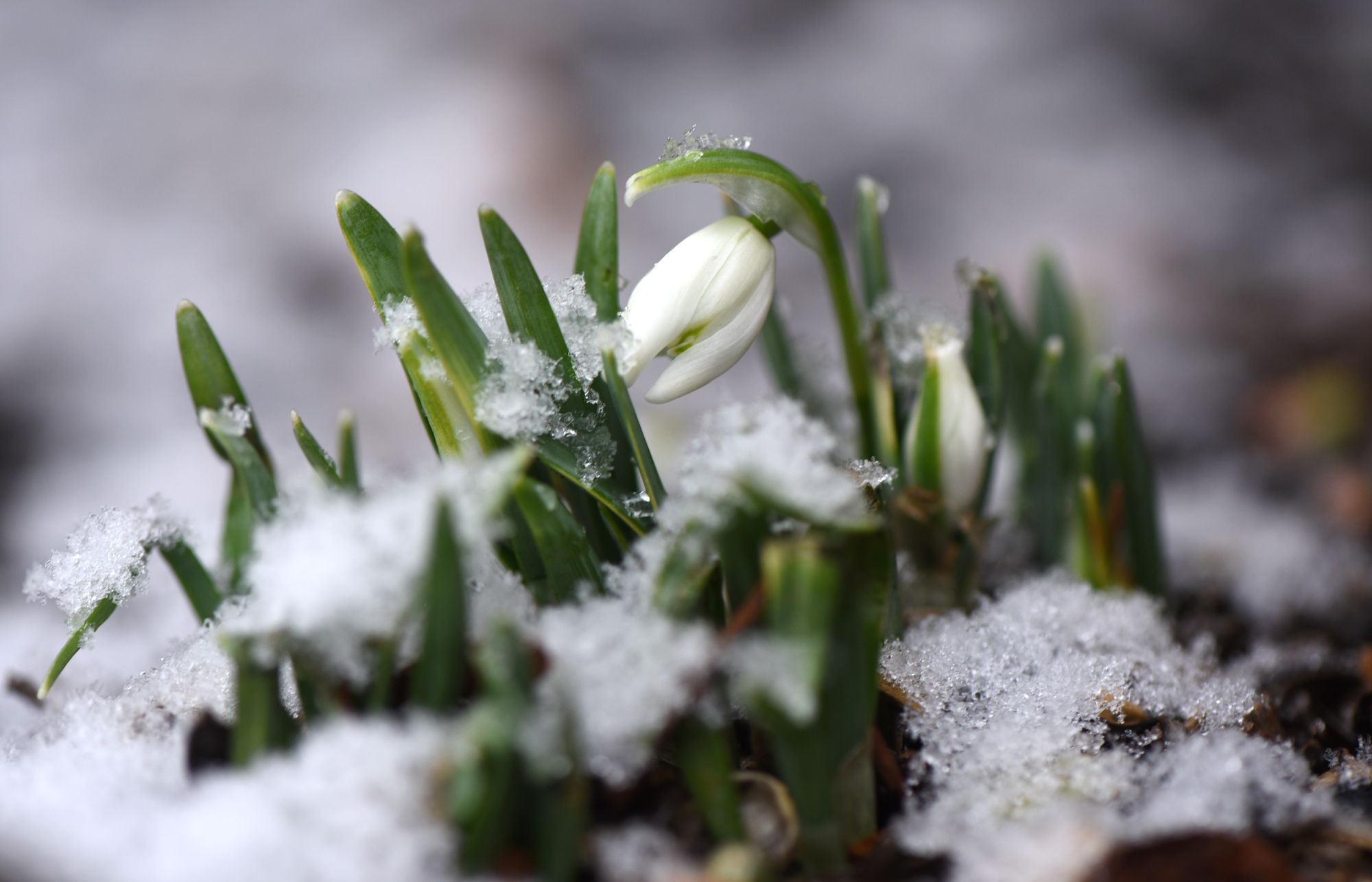
Snowdrops are one of the first flowers to bloom in the late winter.
Crocus
There are lots of different cultivars of crocus. One trick I recently learned from Brent Heath of Brent and Becky’s Bulbs is to soak the bulbs in a critter-repellent like Bobbex to keep the chipmunks from eating them. ‘Pickwick’ was released in 1939 and is a favorite for its blue-and-white striped flowers with luminous orange anthers.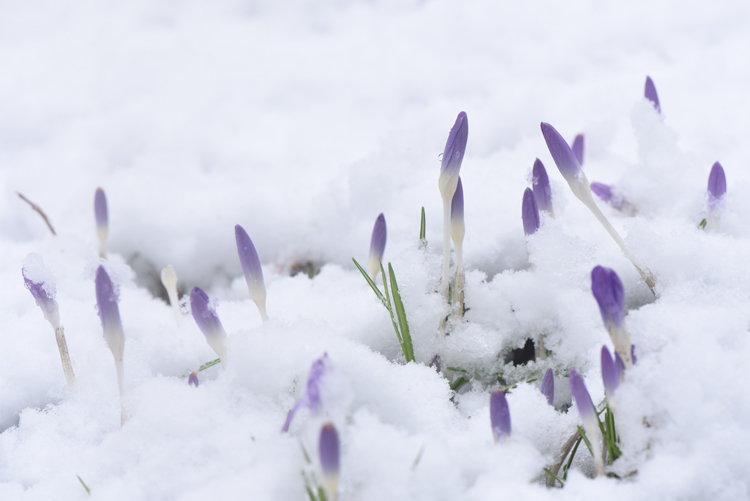
Snow crocus blooms are always a surprise when they emerge. Photos by Doug Oster
Glory of snow
These low-growing blue flowers with white centers will spread over the years making a colorful montage quickly, blooming as the crocus finish. It’s deer resistant with some pink and white varieties available, too.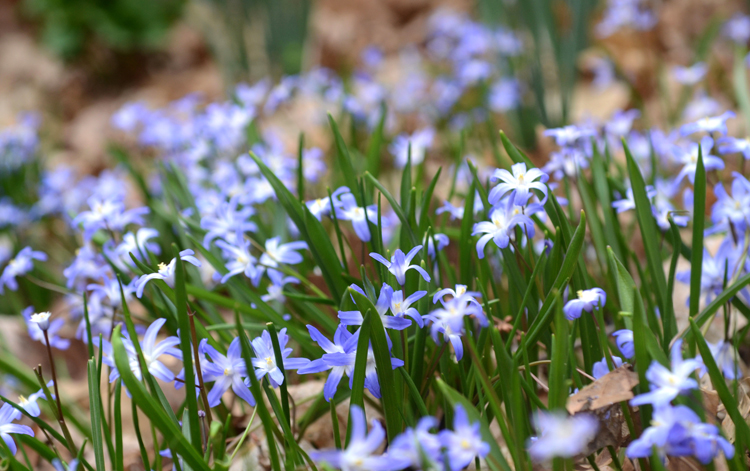
Chionodoxa or Glory of Snow have pretty blue flowers in the early spring and will form a colony in just a few years.
Puschkinia
One of the great things about gardening is discovering a new plant. I’m not sure where I got a hold of puschkinia bulbs last fall, but when the eight-inch tall white flowers with blue stripes emerged, I was hooked. Another deer-resistant colonizer, I’m planting a few more hundred this season.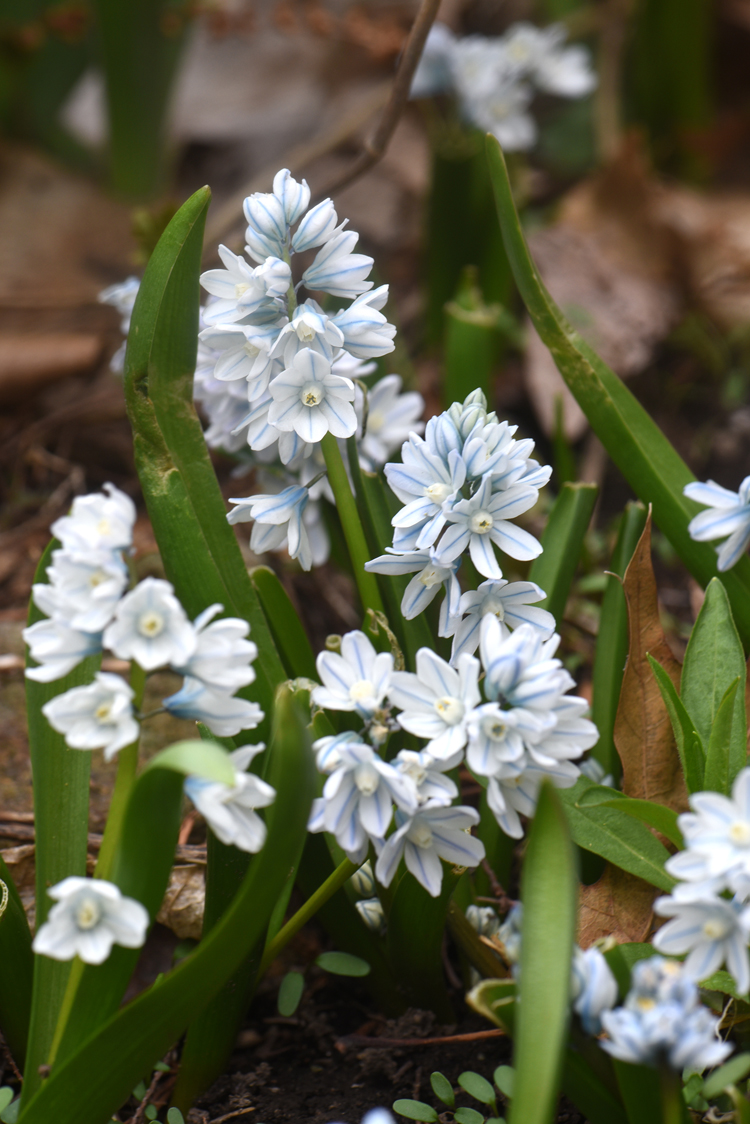
Puschkinia have white flowers with blue stripes and will continue to expand through the seasons.
Daffodils
There are 13 different divisions of daffs, each one with a different flower shape. These harbingers of spring are my favorites. Daffodil season is like no other, once they get going, there’s no turning back. I’ve fallen in love with doubles, counting ‘Tahiti,’ ‘Sir Winston Churchill’ (smells like gardenias), ‘Gay Tabor’ as just a few favorites. I’ve ordered some rare bulbs from Joe Hamm’s Daffodil Hortus in Washington County. There aren’t many things tougher than daffodils; they will thrive for years.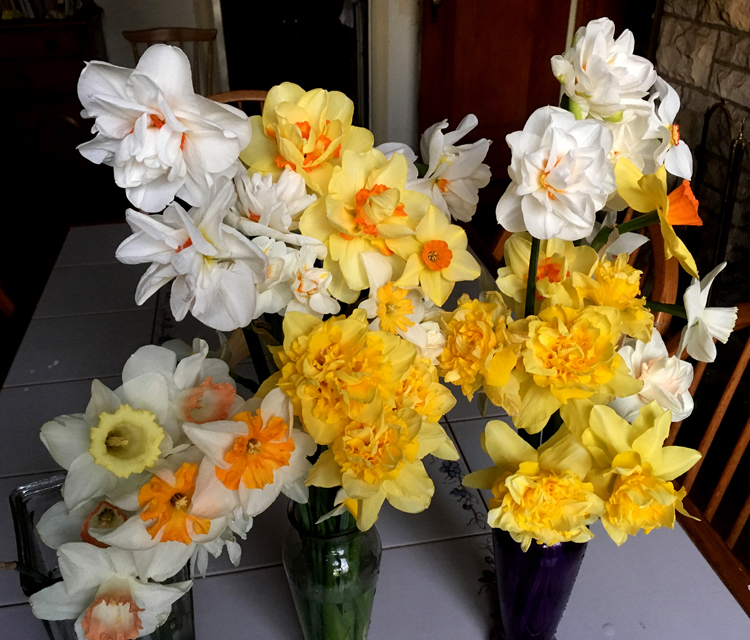
Daffodils are the harbinger of spring. There are 13 different divisions of the flowers, each one has a different type of bloom. They are deer proof and easy to grow.
Tulips
These days I treat them as annuals and grow them in the fenced-in vegetable garden as they are a favorite food of the deer. The most perennial are Darwin varieties and species tulips.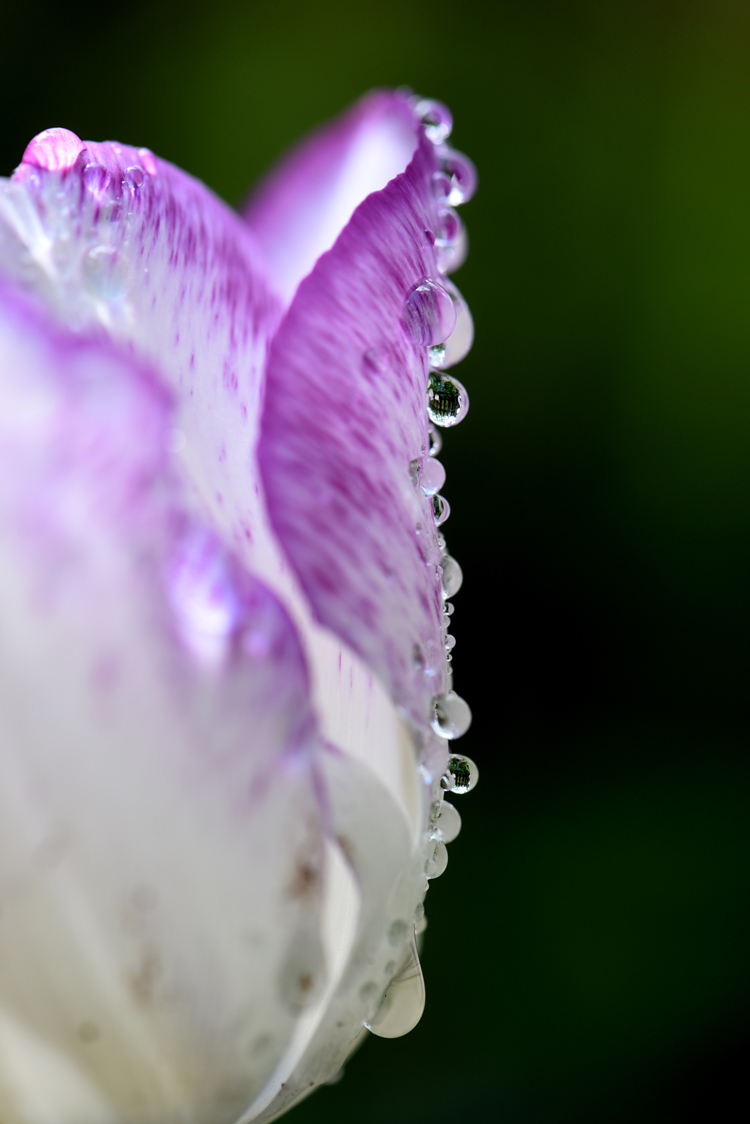
‘Shirley’ tulip is just one of countless varieties. They are treated as annuals as they usually don’t come back in full form unless planted in the perfect spot.
Hyacinths
Not everyone one loves the fragrance of hyacinths like I do. A neighbor at work complained about the heavy perfume of the cut flowers in a vase. The next day they disappeared. Lesson learned, but these flowers might not be welcome at work, but are a must for filling the house with their wonderful aroma.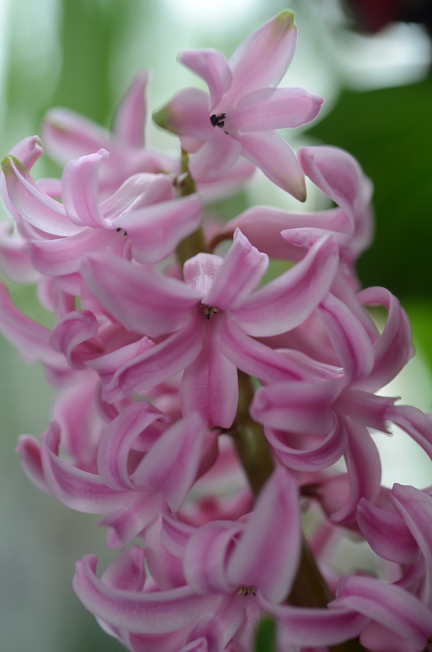
There’s nothing like the fragrance of hyacinths.
Fritillaria
It’s not seen in many gardens anymore, but they should be. Another deer-resistant plant, fritillaria has a wide range of cultivars. Three-foot tall ‘Crown Imperial’ puts on a show with orange flowers in consort with daffodils. There are a host of smaller varieties that deserve a place in the garden.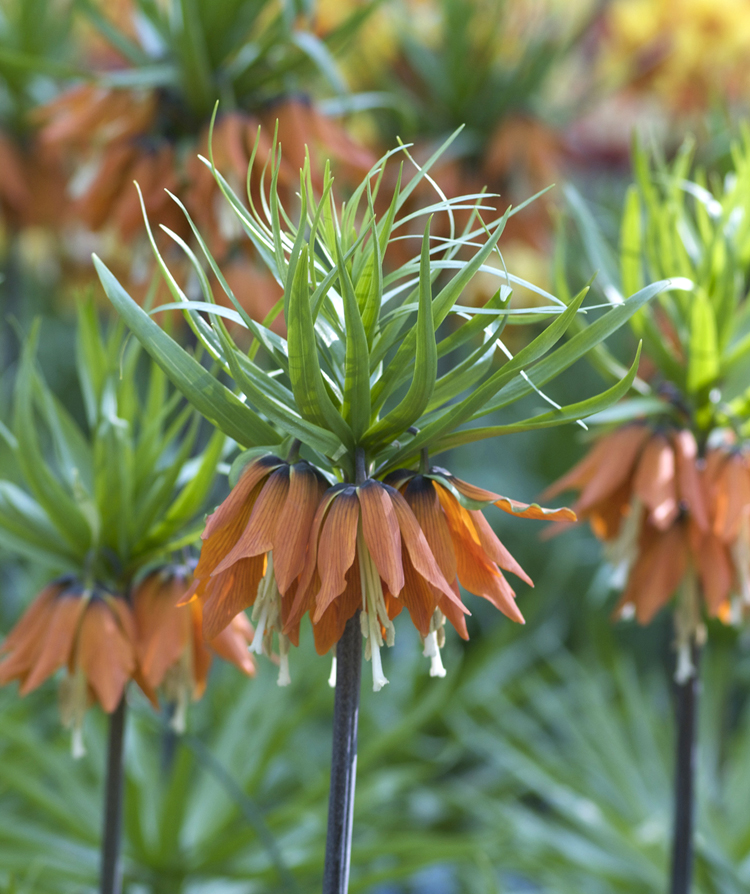
Fritillaria ‘Crown Imperial’ is one of the many cultivars of the species. The flowers are deer resistant and easy to grow.
Alliums
Although said to be deer proof, I caught a small fawn tasting the foliage last spring. Probably best known for tall stems supporting purple globular flowers, this plant from the onion family can take on many shapes, colors, sizes and bloom times. I grew Allium azureum and some other cool sky blue varieties last season and loved them. Before the blooms opened, I mistakenly nibbled on a flower thinking it was chives. Luckily I figured out what the plant was before making a salad out of this pretty plant.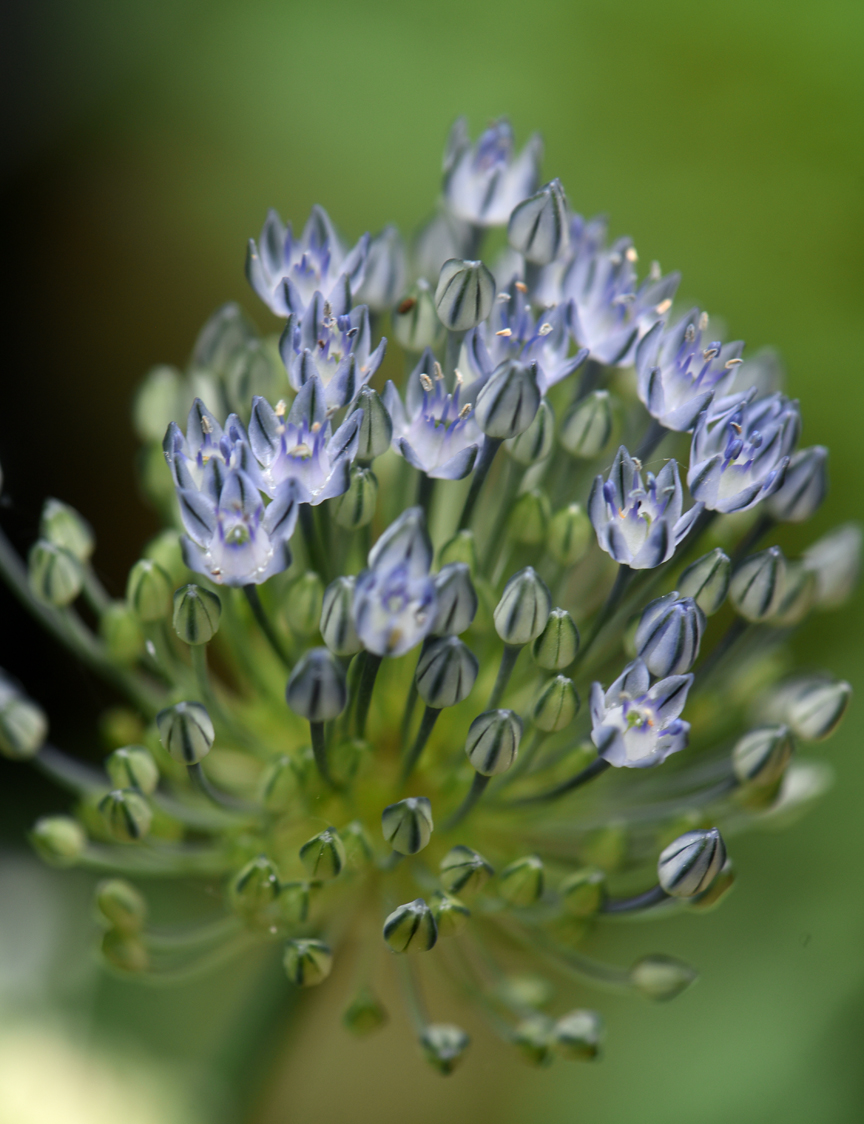
Allium azureum is one of the varieties with blue flowers.
Lilies
Deer love them, so be careful when choosing a planting site. These tall plants are the queen of the summer garden, easy to grow and oftentimes intensely fragrant.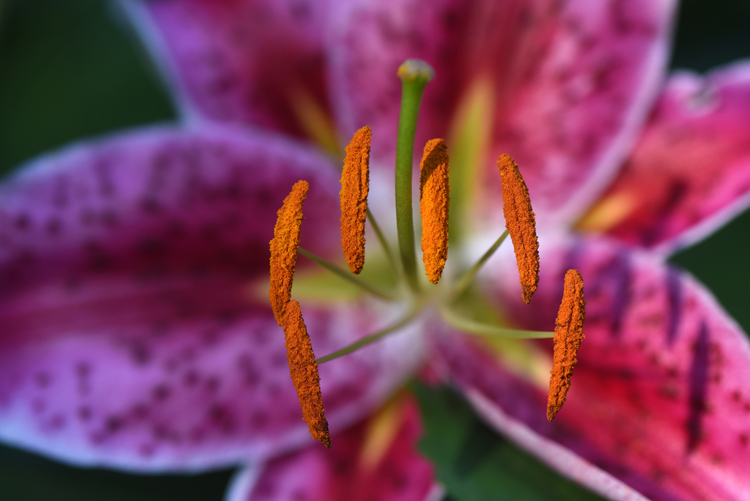
‘Stargazer’ hybrid lily is a winner for its beauty, fragrance and carefree nature. The bulbs can be planted in the fall for summer blooms.
Planting bulbs now builds anticipation for the spring. I'm already thinking about what the landscape will look like with the cheery additions I'm planting now.
Here are my favorite bulb sources-
www.brentandbeckysbulbs.com
www.oldhousegardens.com
www.johnscheepers.com
www.vanengelen.com
www.colorblends.com
www.longfield-gardens.com
www.flowerbulbs.com

